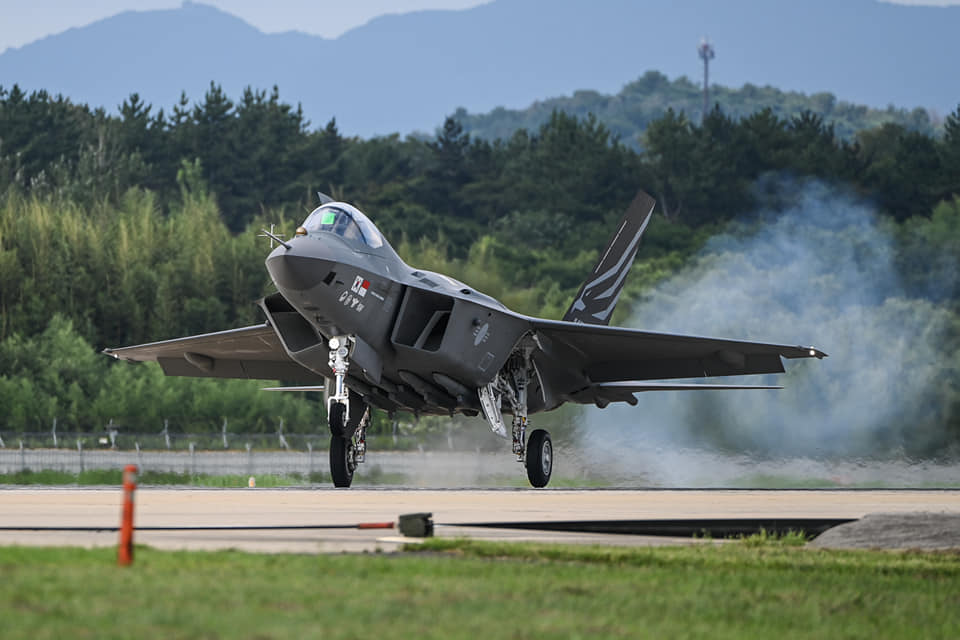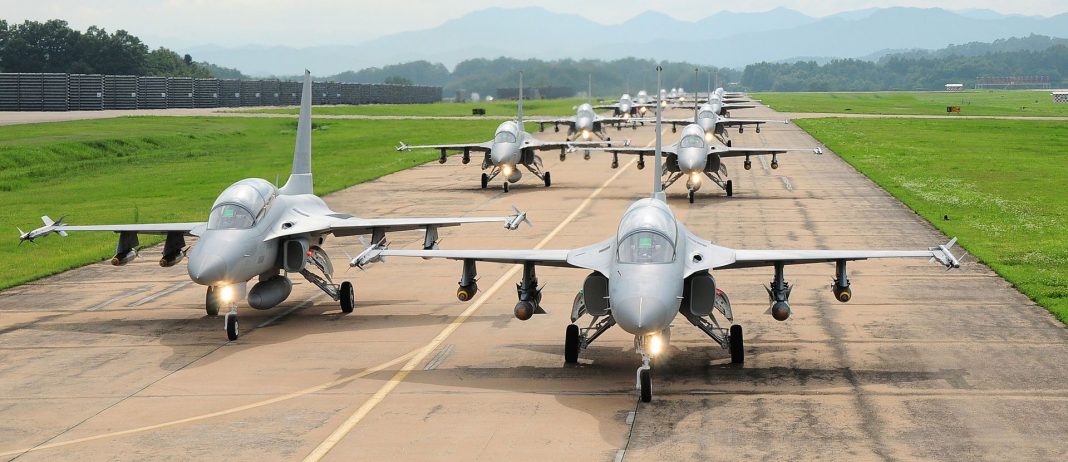Polish Defense Minister Mariusz Błaszczak explained the reasons for the KAI FA-50 win and about potential future additions, which could include the KF-21 Boramae or the latest F-15 variant, the Eagle II.
As we reported last week, Poland will be making a major armament purchase from South Korea, including 48 KAI FA-50 light fighters. These will be used for advanced training and combat missions, complementing the Polish Lockheed Martin F-16s.

But the effort to make Poland one of Europe’s major military powers does not stop there. In an interview given to the specialized media outlet Defence24, Polish Defense Minister Mariusz Błaszczak explained the reasons behind the FA-50 victory and commented that there are plans to strengthen the capabilities of the Polish Air Force (Siły Powietrzne Rzeczypospolitej Polskiej) by adding more fighter jets.
Regarding the FA-50 and the new partnership with South Korea
Although South Korea is not a traditional supplier of defense materiel to Poland, which was acquiring its current capabilities from American and European manufacturers, the Asian option proved to be the most convenient.
In the words of Minister Błaszczak:
«Deciding to purchase equipment in South Korea, I had to consider a couple of aspects, including lethality of weapons, delivery tempo, or industrial benefits. The agreement with the Koreans that we have managed to negotiate fuses all of the above elements. Other equipment manufacturers have not been able to deliver armament of that quality at so short notice, and with so broad collaboration with the Polish defence industry.»
«The transfer of technology tied to FA-50 would make it possible for us to establish a maintenance and servicing facility in Poland. The contracts were negotiated in collaboration with the PGZ Group (a holding company established by the Polish government to unite Polish, state owned defence industry companies) so that the Polish industry can use this opportunity as much as possible.» he added.
Interoperability and ease of integration
The FA-50 was also favored because of Polish pilot feedback and because it possesses high interoperability with the F-16 (from which it is derived) and with currently available ground facilities and equipment. It is also credited with great growth potential, because of its ability to incorporate new and improved sensors, as well as more modern and powerful weaponry.
“These aircraft can be used in combat, but they also are a perfect training platform” the minister said.
Training costs and availability
The FA-50 also prevailed over the M-346 Master advanced trainer and light attack aircraft, which is currently in use in the Polish Air Force. As the minister explains in the interview:
«A pilot who has been trained on the FA-50 only needs a few hours to start flying the F-16 on his own. The cost of the training as such is much lower, and we could train more pilots that way. The M-346s in use now have too low availability; I have reported this several times to my Italian counterpart. That is why we decided to acquire the FA-50s. Let’s remember that the FA-50s themselves, according to data from current users, offer a high availability of about 85%.»
FA-50 Block 20
Of the 48 FA-50s procured by Poland, the first 12 would be received by mid-2023. The aircraft would be configured to be fully integrated within the NATO air command structure.
The aircraft would be of the boosted version called Block 20, which includes a software upgrade and the necessary wiring for the aircraft to obtain Beyond Visual Range (BVR) combat capability, which in the Polish case would assume the form of the AIM-120 AMRAAM.
Industrial compensation
The contract involves the establishment of a maintenance facility for the FA-50 in Poland by 2026. This would maintain the operational availability of fighter aircraft in Poland at the highest level.
New additions on the horizon
Given the current security situation in Europe, the Polish Air Force will continue to add modern materiel to fully replace the aging MiG-29 and Su-22 and increase their capabilities and lethality.
On future acquisitions, Mariusz Błaszczak said:
«I will add that the acquisition of those aircraft is not our last move, in the expansion of the capabilities of the Polish Air Force. We have accelerated the delivery of the F-35s. Overall, we are planning to procure extra F-35s or F-15s, and we are watching closely the progress made by our South Korean partners when working on the KF-21 Boramae.»

See also: The KF-21 Boramae took to the skies for the first time
The purchase of the FA-50, as well as the purchase and manufacture in the country of 648 K9/K9PL self-propelled artillery systems and the 980 K2/K2PL Phanter heavy tanks will result in the establishment of strong commercial, technical and industrial ties between the European country and South Korea, which could well open the door to an eventual Polish participation in the KF-21 Boramae program, which recently had its first flight and has years of development ahead of it.






